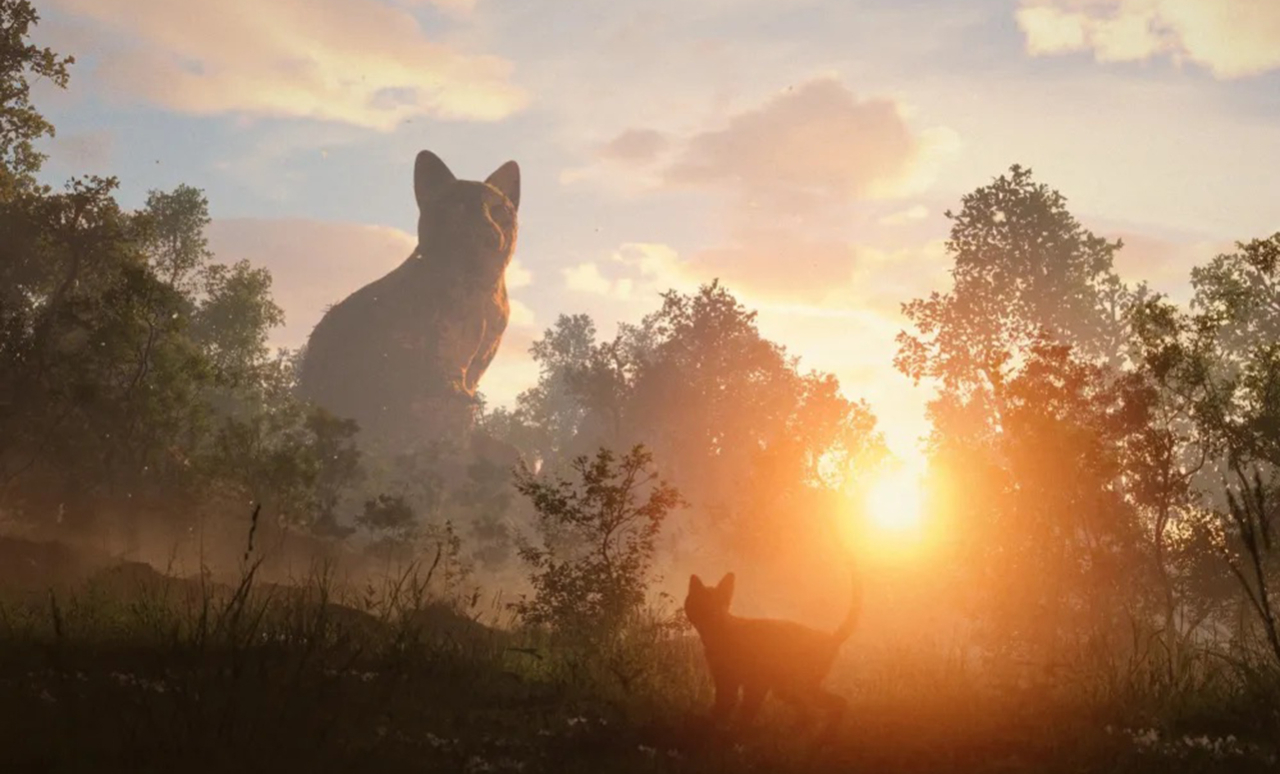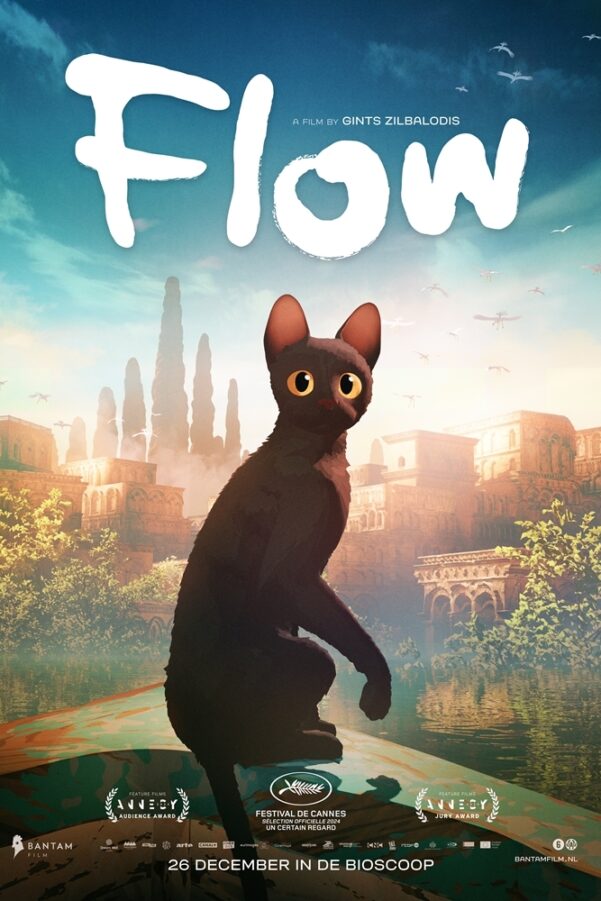Flow

With a fable-like simplicity and a sleek, digitally rendered aesthetic, Gints Zilbalodis’s sophomore feature, Flow, transports viewers into a world that feels both ancient and modern while artfully stripping away the presence of humanity in the natural landscape. The animated film follows a solitary black cat navigating a landscape submerged by floodwaters as it gathers a ragtag ensemble of land-dwelling animals – a golden retriever, a capybara, a lemur, and a large, white-feathered bird – on a boat in a journey that symbolises both collective survival and companionship.
Like Zilbalodis’s first feature, Away (2019), Flow is free of dialogue, with its characters drawing from primal instincts of survival and the search for community rather than anthropomorphic traits. Their shared passage across muddy waters evokes the Biblical narrative of Noah’s Ark, yet without human intervention or the hope of salvation from a divine hand. Instead, Zilbalodis offers a more introspective take on human absence and nature’s reclamation, where the survival of these animal protagonists is driven not by man or myth, but by sheer instinct and the subtle bonds they form as loners and outcasts from their own species.
Flow’s visual framework evokes the sublime – a combination of beauty, grandeur and a sense of fear or insignificance in the face of vast natural forces – in a manner reminiscent of paintings of the Hudson River School. Even with the absence of a human for perspective, the smallness of the animals is highlighted compared to the grand forces of the floodwater. The fluid camerawork mirrors the natural movement and experience of being surrounded and submerged by moving waters.
The detailed, ever-moving 3D animation paints nature as not simply a backdrop, but as a dynamic, integral part of the story, and the naturalistic, unembellished designs for the animals are further reminiscent of the environmental storytelling of Studio Ghibli classics. Zilbaldolis’s vision captures the awe and wonder animals experience toward one another and the natural world, brilliantly depicted in a scene where a cat is mesmerised by the colossal presence of a whale during a storm. As the whale slowly passes, its immense size is revealed gradually – first the back, then the sweeping tail – subverting the traditional “protagonist versus nature” narrative common in survival stories. Rather than framing nature as an adversary, Zilbaldolis presents it as a vast, awe-inspiring force that exists to be experienced and navigated, highlighting the profound beauty and complexity of the natural world instead of a simple struggle for dominance.
With both its technical virtuosity and departure from traditional animated storytelling, Flow presents a powerful example of dialogue-free films in an age dominated by conversation, demonstrating that resonant narratives can emerge without words and inviting viewers to engage deeply with its emotional and visual world.
Christina Yang
Read more reviews from our London Film Festival coverage here.
For further information about the event visit the London Film Festival website here.
Watch the trailer for Flow here:


























Facebook
Twitter
Instagram
YouTube
RSS